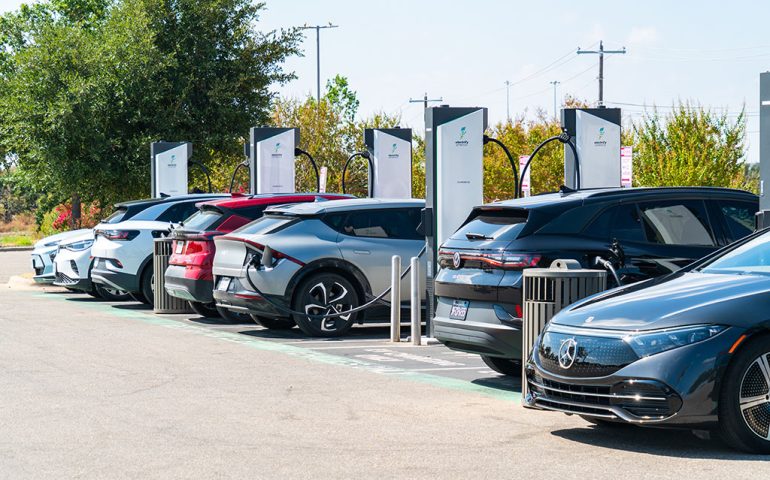
The electric vehicle (EV) revolution continues to gain momentum in the U.S., and not even political pushback from an incoming Trump administration can derail one of its most significant pillars: the nationwide EV charging network. In other automotive headlines, Stellantis is swiftly undoing much of former CEO Carlos Tavares’ legacy, and Trump has also pledged to halt the government and military from purchasing electric vehicles altogether.
Here’s what you need to know as the industry shifts gears.
Also, don’t forget that you can get discounted new car pricing with a free quote through qualified local dealer partners.
Trump Can’t Stop EV Charging Expansion
Despite President-elect Donald Trump’s well-documented resistance to EVs, the federally backed EV charging infrastructure will move forward, largely unimpeded. That’s because the funding for the National Electric Vehicle Infrastructure (NEVI) program, a five-year initiative backed by $5 billion from the Bipartisan Infrastructure Law, is already locked in and disbursed to states.
Industry experts confirm that rolling back the NEVI program would require an almost insurmountable effort. Much of the funding has already been allocated to individual states, which now control the pace and progress of EV charger installations. According to Automotive News, nearly half of the program’s total funding—approximately $2.4 billion—has been distributed, with construction well underway in several regions.
States, which act as independent administrators for these funds (similar to traditional road and bridge projects), continue to make progress. So far, 11 states have launched more than 30 charging locations, offering over 130 individual ports. However, a handful of states—10 to be exact—have been slow to submit project proposals. A Trump administration could influence their hesitation, but industry momentum and private investment are set to fill any gaps.
According to Atlas Public Policy, the private sector’s investment in EV infrastructure already dwarfs federal funding. Companies ranging from automakers to gas station operators view public chargers as critical to their long-term survival, regardless of political fluctuations. The future of fueling is electric, and business leaders know they can’t afford to sit out.
As Nick Nigro of Atlas explains, “The private sector is not going to slow down,” as strategic long-term growth drives continued investment. For EV owners, this is a glimmer of hope in what could be a challenging political environment.
While Trump may not be able to stop EV charger expansion, his administration plans to eliminate EV adoption efforts within the federal government and military. This includes halting all mandates that require government fleets to transition to electric vehicles and rolling back programs aimed at developing electric military vehicles.
The Biden administration’s policy had set a requirement for all government light vehicles to be zero-emission by 2027—a goal that will now be scrapped. Trump also plans to weaken Environmental Protection Agency (EPA) fuel efficiency standards, reverting to 2019 regulations, which would allow significantly higher carbon emissions from new vehicles.
This rollback will undoubtedly impact states like California, which lead the charge on strict emissions regulations. Trump has already signaled plans to challenge California’s authority to set its own emission standards, a move that could ripple across the industry.
Adding to this, Trump’s team plans to leverage trade tariffs, particularly targeting EV battery imports under the guise of national security. This could further disrupt the already fragile EV supply chain, impacting automakers and battery manufacturers alike.